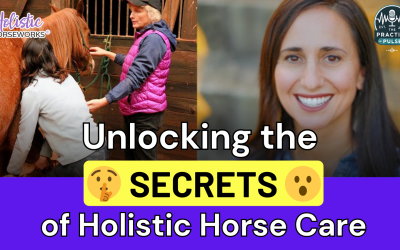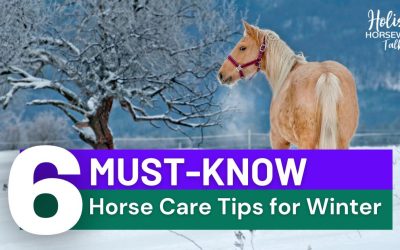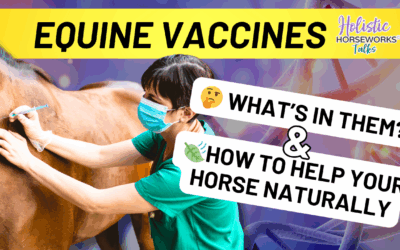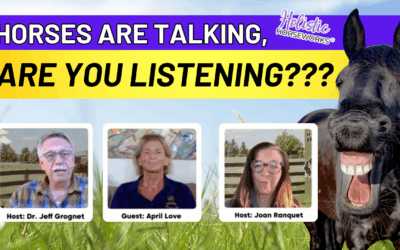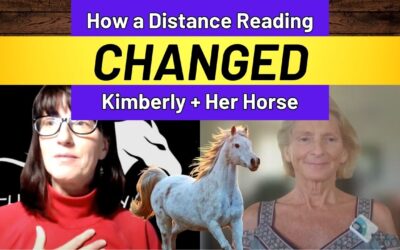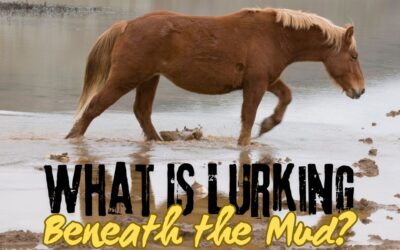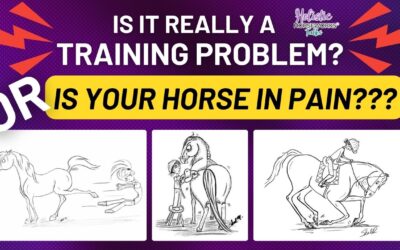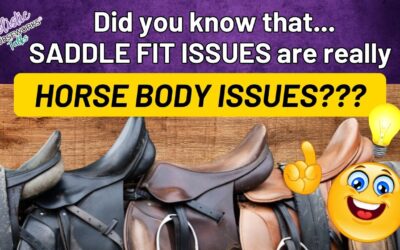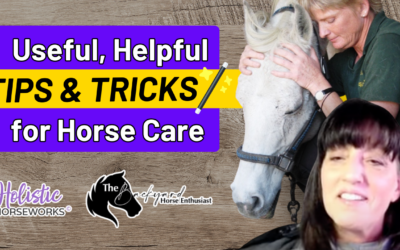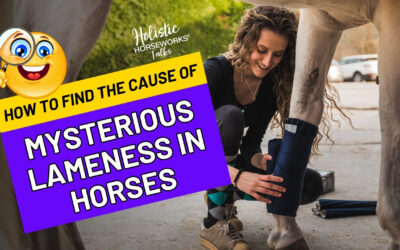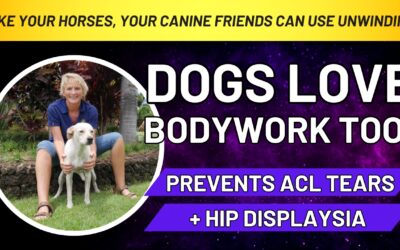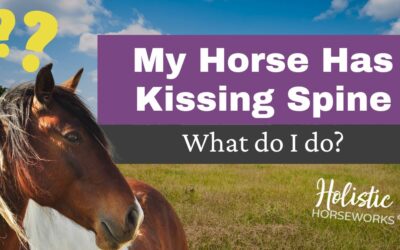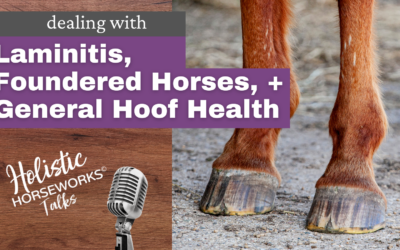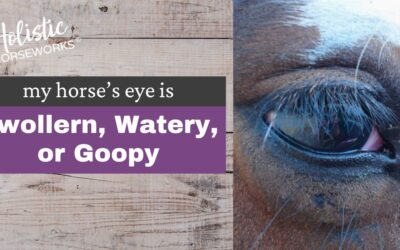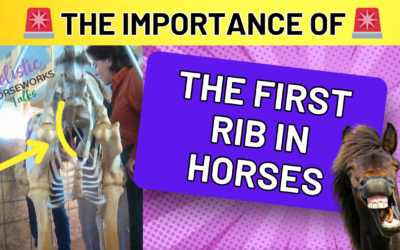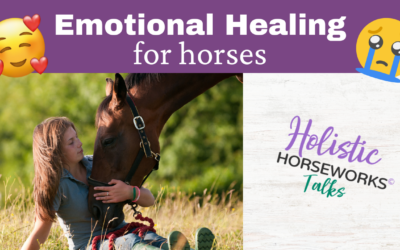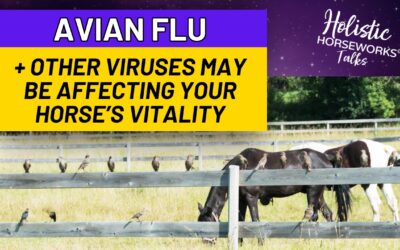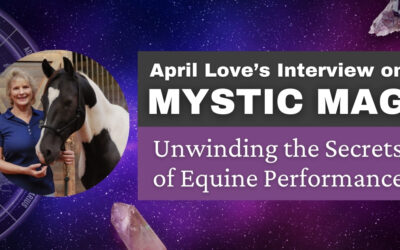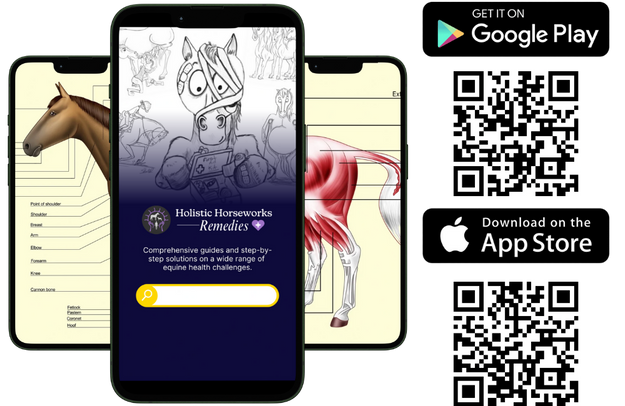Unlocking the Secrets of Holistic Horse Care: Insights from the Equine Musculoskeletal Program
In the world of horse care, understanding the musculoskeletal system is vital for ensuring the health and performance of our equine companions. In a recent podcast episode, experts from Holistic Horseworks shared invaluable insights into their musculoskeletal program, shedding light on the importance of holistic approaches in equine health.
6 Must-Know Hore Care Tips for Winter
In this comprehensive guide, we’ll share five essential cold weather horse care tips straight from the experts at Holistic Horseworks.Whether you’re dealing with freezing temperatures, icy conditions or relentless mud, these strategies will help you keep your horse happy and healthy through even the harshest of winters.
Equine Vaccines: What’s In Them and How to Help Your Horse Naturally
Vaccines are often considered a cornerstone of equine health, but have you ever wondered exactly what’s in them, or how they might be affecting your horse’s long-term health?
Barn Life Tips for a Bug Free Summer
Every season, I hear from folks battling mosquitoes, flies, and ticks in the barn, garden, and pasture. Over the years, I’ve found a few easy tricks that make a big difference. If you’re tired of swatting bugs during barn chores or want to keep your horses happy and itch-free, these are the solutions I use myself, and they work!
Horses Are Talking, Are You Listening?
Holistic equine expert April Love wants you to know: your horse is speaking. And once you learn how to listen, everything changes. In her recent appearance at the Holistic Horse Conference, April sat down with Dr. Jeff Grognet and animal communicator Joan Ranquet to share her revolutionary approach to equine wellness.
How a Distance Reading CHANGED Kimberly and Her Horse
In this interview, holistic healing expert April Love uncovers the deep, often invisible threads connecting horse and human wellness. Join Kimberly, host of The Backyard Horse Enthusiast, as she shares her transformative experience with April’s intuitive healing techniques.
Summer Travel Tips for Your Horse: Keep Them Happy, Healthy, & Hydrated
Traveling to summer shows and events can be exciting, but for our horses, it often comes with a heavy load of emotional and physical stress. Here are some key things to consider when prepping your horse for summer travel, and the strategies I’ve personally used to help mine stay healthy, limber, and ready to shine.
Mud Fever Prevention and Remedies
Mud fever, also known as pastern dermatitis, scratches, grease heel, etc., is a common skin condition in horses caused by a combination of wet and muddy conditions, bacteria, and fungi. It typically affects the lower legs, especially white ones, and, if not addressed properly. can cause discomfort and lameness. Immune-challenged horses are also more susceptible to getting mud fever.
Is It Really a Training Problem, or Is Your Horse in Pain?
If your horse bucks, resists the canter, or just feels off under saddle, the first thing many people assume is that it’s a training issue. Maybe the horse is being stubborn, or maybe it just needs more groundwork. But I want to let you in on something I’ve seen over and over again—those “training problems” are almost always your horse trying to say, “Ouch, that hurts!”
Did You Know That Saddle Fit Issues Are Really Horse Body Issues?
Saddle fit isn’t just about the saddle — it’s about the ever-changing body of the horse beneath it. While it’s tempting to invest in custom saddles or quick fixes like padded inserts, lasting comfort and performance come from addressing the root of the issue: your horse’s physical balance and symmetry.
Useful, Helpful Tips and Tricks for Horse Care | April Love’s Interview on The Backyard Horse Enthusiast
What would you do if your horse was limping, colicking, or spooking—and no one could tell you why? That question lit a fire in April Love that would grow into a global mission: helping horse owners uncover the root causes of mystery lameness, behavioral issues, and chronic pain that traditional methods often miss.
How to Find the Cause of Lameness in Horses
When a horse shows signs of lameness, pinpointing the exact cause can be challenging due to compensatory mechanisms. Horses often redistribute weight and movement to avoid pain, making the actual injury difficult to locate. Here’s a practical step-by-step guide to help you identify the root cause of lameness in horses.
Dogs Love Bodywork, Too! (Prevents ACL Tears and Hip Displaysia.)
If you’ve ever watched your dog run and noticed something a bit off—like both hind legs moving together or noticeably dragging their toes—it might be more than just an aging issue or a minor injury. Proactively managing canine skeletal health can prevent long-term joint issues such as hip dysplasia and ACL tears.
Effective Pain Relief for Horses with Kissing Spine
Kissing spine sounds terrible and it can end your horse’s career by causing bucking or bolting under saddle which can be extremely dangerous to the rider. When the vertebrae’s bony parts, called the “spinous process,” are too close together, they rub against each other, causing friction and heat. This leads to calcium buildup, resulting in calcification that can almost fuse the vertebrae in some areas. The irritation a horse experiences from kissing spine would be similar to you having a back spasm or herniated disc!
Natural Remedies for Laminitis in Horses
[dsm_social_share_buttons dsm_shape="circle" dsm_alignment="center" _builder_version="4.27.4" _module_preset="default" header_font="Plus Jakarta Sans||||||||" header_font_size="14px" locked="off"...
Prevent Uveitis in Horses for Healthier Eyes
Share This Post:[dsm_social_share_buttons dsm_shape="circle" dsm_alignment="center" _builder_version="4.27.4" _module_preset="default" header_font="Plus Jakarta Sans||||||||" header_font_size="14px"...
Improve Horse Performance with First Rib Alignment
Improve Horse Performance with First Rib Alignment Share this episode: Table of Contents Join us in this episode of Holistic Horseworks Talks with April Love as we explore the...
Emotional Healing for Healthier & Happier Horses
Emotional Healing for Healthier & Happier Horses Share this episode: Table of Contents In this episode of Holistic Horseworks Talks, April Love delves into equine care, focusing...
Avian Flu and Other Viruses May Be Affecting Your Horse’s Vitality
There has been a lot of news about Avian Flu infecting cattle and humans. Is it possible horses could contract this and other diseases? What can horse owners do to protect their horses? In this episode of Holistic Horseworks Talks, April discusses ways to keep horses as healthy as possible and empower people to help their horses rather than always relying on paid services.
Mystac Mag Interview: Unwinding the Secrets of Equine Performance, April Love’s Journey to Holistic Healing
April Love, the visionary behind Holistic Horseworks LLC and the creator of the International Institute for Complementary Therapists (IICT), has always been captivated by the grace and power of horses in motion. Her journey began with a simple observation: some horses move more fluidly than others. This curiosity led her to uncover the deeper physical and emotional challenges…
Have an article you would like to see?

